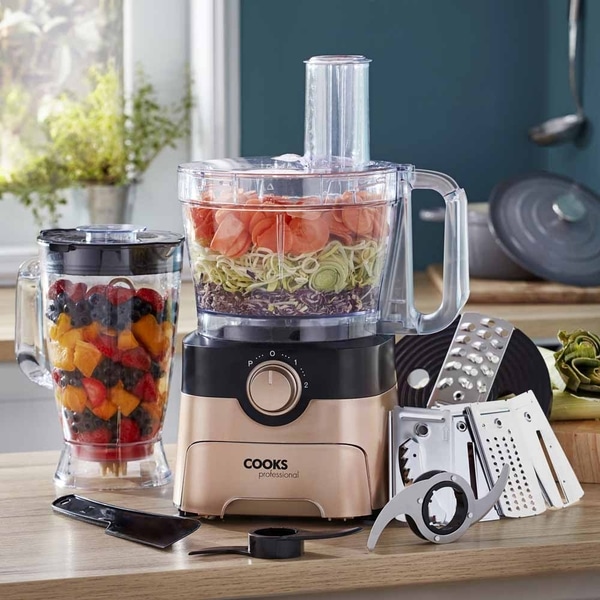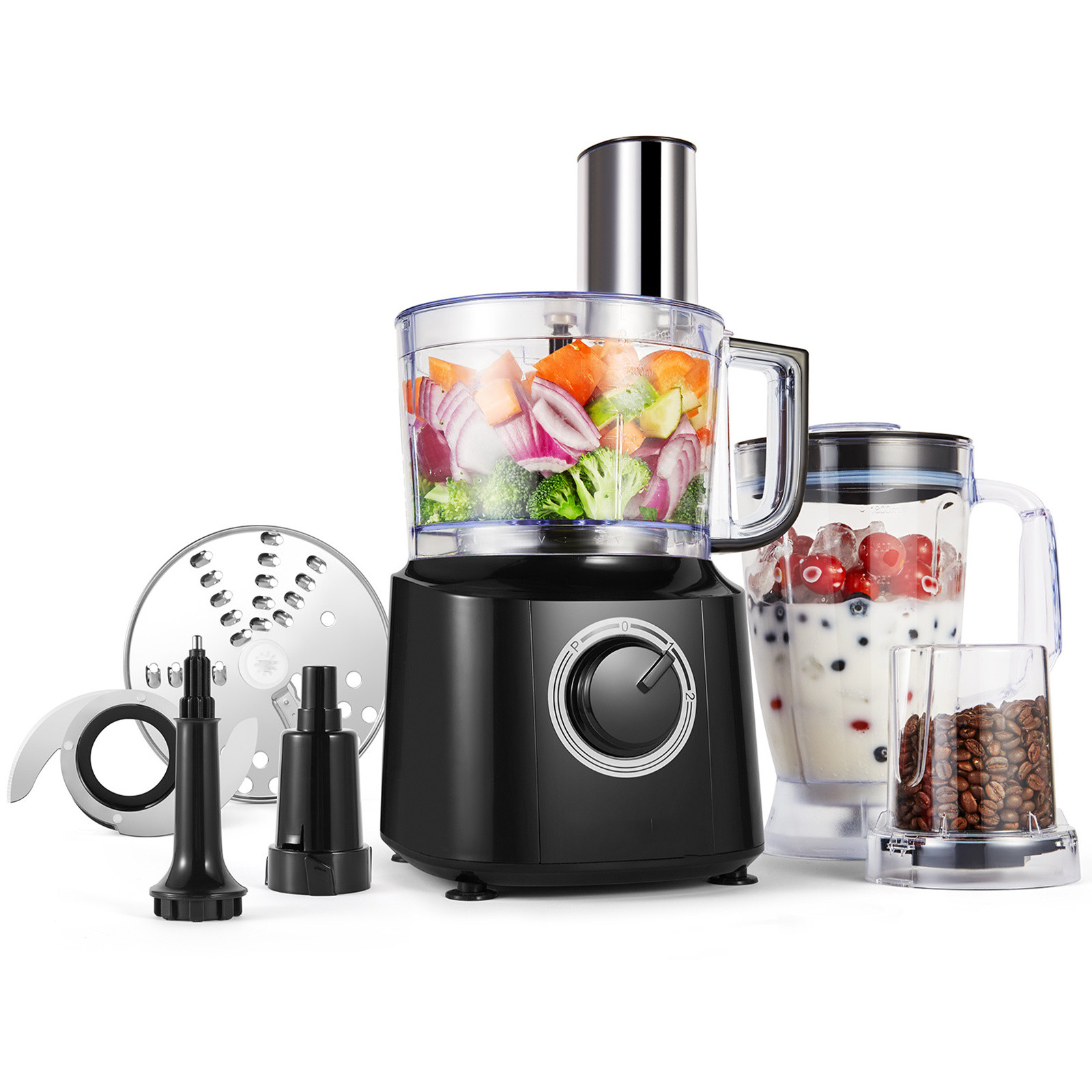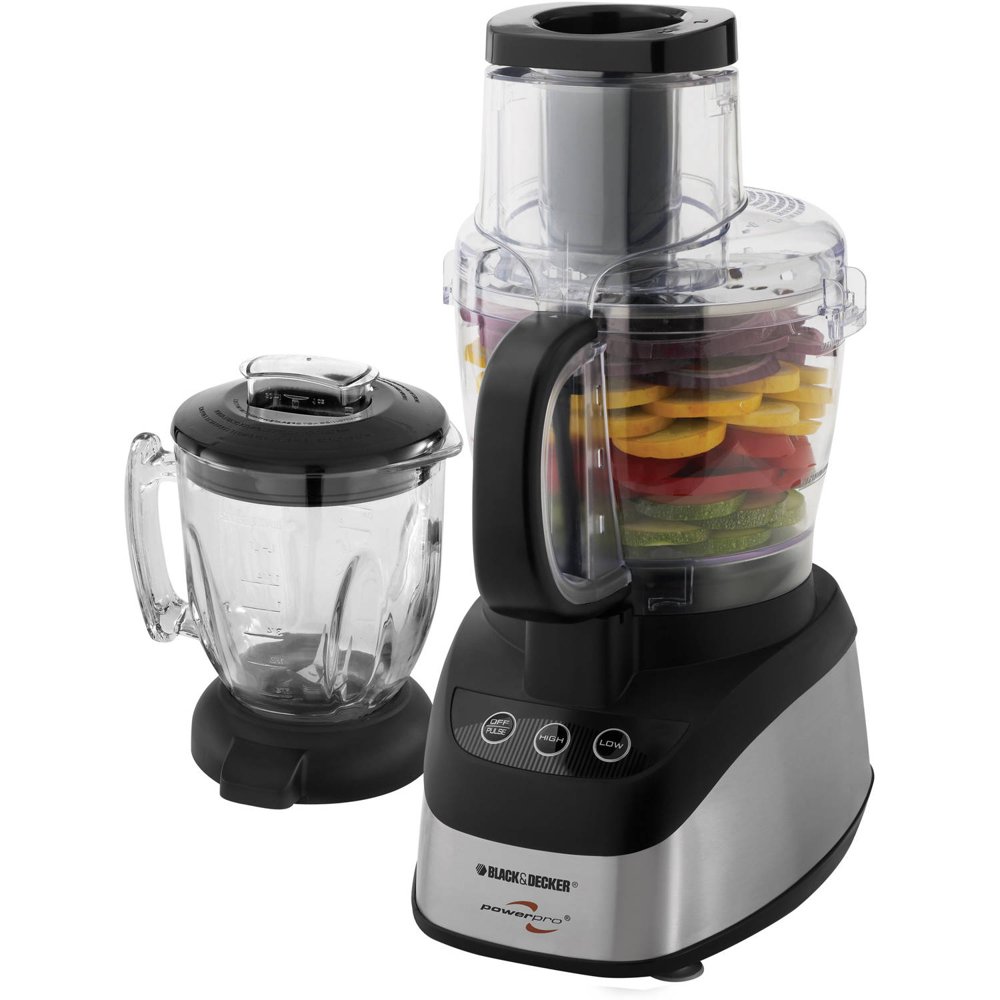In the world of culinary arts, efficiency and precision are paramount. A professional food processor is an indispensable tool that simplifies many kitchen tasks, transforming the cooking experience for chefs and home cooks alike. It combines versatility with a range of functionalities that allow for everything from chopping and slicing to kneading dough and making purees. This article explores the various facets of the professional food processor, providing insight into its benefits, features, and best practices.
What is a Professional Food Processor?
A professional food processor is more than just a simple kitchen appliance. It is a robust machine designed for intensive cooking tasks. Built with powerful motors and superior blades, these processors can handle a variety of foods, making them ideal for restaurants, catering services, and serious home chefs. The design usually includes multiple stainless steel attachments, such as slicing discs, shredding discs, and dough blades, increasing their functionality.
Key Features of a Professional Food Processor
When selecting a professional food processor, it’s essential to consider a few key features that set them apart from regular food processors:
Powerful Motor
One of the most critical components of any professional food processor is its motor. Typically, these machines are equipped with motors ranging from 600 watts to over 1,200 watts. A more powerful motor ensures that the processor can tackle demanding tasks without burning out or overheating.
Multiple Settings and Functions
A professional food processor often comes with various settings that allow for different speeds and functions. This could include pulse options, multiple speed settings, and specific programs designed for tasks like kneading dough or making smoothies. These options enhance the versatility of the device, making it indispensable for culinary professionals.
Capacity and Size
Professional food processors have larger capacities than standard models, typically ranging from 10 to 20 cups. This feature makes them ideal for preparing meals in bulk, which is a common requirement in commercial kitchens. A larger capacity can save time and effort, particularly when working to serve large groups or events.
Durability and Build Quality
As they are intended for frequent use in commercial settings, professional food processors should be constructed to withstand regular wear and tear. This includes high-quality materials that resist scratches and wear, robust motor components, and easy-to-clean surfaces. Stainless steel is a common material used in blades and other parts, owing to its durability and resistance to rust.
Benefits of Using a Professional Food Processor
There are numerous benefits to incorporating a professional food processor into your culinary toolkit, especially if you are serious about cooking.
Time-Saving Convenience
One of the most significant advantages of a professional food processor is the sheer amount of time it can save. Chopping, slicing, and shredding vegetables can take a considerable amount of time when done manually. However, a food processor can reduce this prep time significantly, allowing chefs to focus on cooking rather than food prep.
Consistency in Preparation
Consistency is crucial in culinary arts, especially when serving a large number of guests or diners. A professional food processor ensures uniformity in food preparation, ensuring that all components of your dish are evenly sliced, diced, or chopped. This consistency can elevate the presentation and ultimately enhance the dining experience.
Versatility in Cooking
The various attachments and customizable settings of a professional food processor enable it to perform an array of tasks. From grating cheese and making nut butter to emulsifying dressings and mixing dough, a professional food processor can adapt to nearly any preparation need, making it a versatile kitchen ally.
Enhanced Culinary Creativity
With a professional food processor at your disposal, you can experiment with new recipes and culinary techniques without the burden of time-consuming prep work. The ability to quickly prep ingredients allows chefs to be more creative and try different flavor combinations and cooking styles.
Choosing the Right Professional Food Processor
Given the variety of options available in the market, selecting the right professional food processor can be daunting. Here are some critical factors to consider when making your decision:
Brand Reputation
Brands that have established a reputation for quality and reliability are generally a safe choice when investing in a professional food processor. Well-known brands often stand behind their products with warranties and customer support, providing additional reassurance for buyers.
Price Considerations
Professional food processors come at varying price points. While it may be tempting to opt for the cheapest option, remember that investing in a higher-quality appliance can pay off in the long run. Cheaper models may compromise on durability or functionality, leading to more frequent replacements.
User Reviews
Always pay attention to user reviews and feedback before making a purchase. Online resources and forums can provide insights into the real-world performance of a product, highlighting advantages and potential drawbacks you may not have considered.
Ease of Cleaning
In a professional kitchen, time spent cleaning can detract from actual cooking time. Look for a food processor with removable, dishwasher-safe components to simplify the cleaning process. Smooth surfaces and well-designed parts will also make handwashing easier if necessary.
Maintenance Tips for Professional Food Processors
Like any kitchen equipment, proper maintenance is crucial for extending the life of your food processor. Here are some tips to keep in mind:
Regular Cleaning
After each use, make it a habit to clean all parts of the food processor thoroughly. This minimizes the risk of contamination and maintains the appliance’s performance. Pay particular attention to the blades, which can become dull if not cared for.
Blade Sharpening
Over time, the sharpness of the blades may diminish. Regularly check the blades for any signs of wear, and consider sharpening them or replacing them if necessary. A sharp blade enhances the machine’s efficiency and effectiveness.
Avoid Overloading
While professional food processors are designed to handle more significant tasks than standard models, they still have limits. Avoid overloading the processor with too many ingredients at once, as this can strain the motor and lead to premature wear.
Store Properly
When not in use, store the food processor in a safe, dry place. If possible, keep it in its original packaging or a protective case to avoid accidental damage.
 Practical Applications in the Kitchen
Practical Applications in the Kitchen
Understanding how to utilize a professional food processor effectively can open up a world of culinary possibilities. Here are some practical applications and methods that can maximize its use:
Chopping and Slicing Vegetables
Chopping onions, carrots, or other vegetables can be labor-intensive. By using a food processor, you can quickly chop or slice a significant amount of vegetables with consistent results. This is especially useful for preparing ingredients for soups, stews, or salads.
Making Dough
Kneading dough by hand can be back-breaking work, but a food processor often features a dough blade designed to mix and knead various types of dough quickly. Whether making bread, pastries, or pizza, this tool minimizes time and effort while achieving excellent results.
Emulsifying Dressings and Sauces
Creating emulsified sauces, such as vinaigrettes and mayonnaise, can be a challenge. However, with a professional food processor, the process becomes more straightforward. The motor’s speed and power enable you to emulsify ingredients thoroughly, producing a stable and creamy consistency.
Grinding Herbs and Spices
Fresh herbs and spices can elevate any dish when used correctly. A professional food processor can finely chop herbs like cilantro or basil or grind spices, facilitating their incorporation into your recipes.
Conclusion: Elevating Your Culinary Experience with a Professional Food Processor
The professional food processor stands as a valuable asset in both home and commercial kitchens. Its efficiency, versatility, and ability to ensure consistent food preparation make it a must-have tool for anyone serious about culinary arts. From saving time and enhancing creativity to offering durability and ease of use, this appliance can transform the way chefs approach food preparation. By understanding its benefits and best practices, you can fully harness the power of the food processor, ultimately elevating your culinary creations to new heights.




